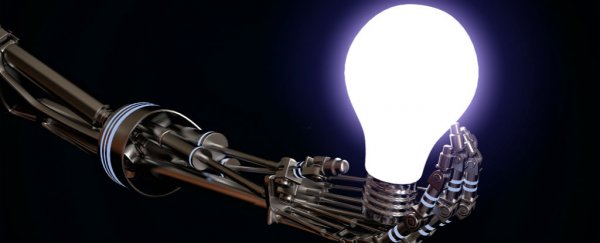A series of tests designed to challenge some of the best AI systems in the world has pitted them against the human IQ (Intelligence Quotient) test to find that their intelligence currently sits at the level of a 4-year-old child.
Conducted by a team from the University of Illinois in the US, the tests found that our most advanced AI systems match the average toddler in terms of smartness. When the age was upped to seven, the software programs found themselves well beaten.
The IQ test is just one measure of intelligence, of course, and computers are way ahead of us in some tasks (like the speed of their calculations). What the test tries to do is assess the ability of someone to rationally understand the world around them - it's in this particular area of self-awareness where software is still some way behind.
An MIT-developed AI machine called ConceptNet - which academics have been working on since the 1990s - was one of the systems tested. The computer scored highly on vocabulary and similarities, averagely well on information, and poorly on word reasoning and comprehension.
IQ tests vary in scope and format depending on the age of the person taking it. In this case, questions such as "where can you find a penguin?" or "what is a house?" were asked. Test subjects might be asked to identify something based on clues about it, or asked "why do we shake hands?" As you can see, those are the types of queries that computers might have trouble relating to.
In some cases, the research team broke down the question in several different ways to see how the ConceptNet system would respond, but the answers were often puzzling. For example, when told "this animal has a mane if it is male", "this is an animal that lives in Africa" and "this a big yellowish-brown cat", the computer came back with the following list of potential matches: dog, farm, creature, home, and cat.
"Common sense should at the very least confine the answer to animals, and should also make the simple inference that if the clues say it is a cat, then types of cats are the only alternatives to be considered," Ohlsson told MIT Technology Review.
Nevertheless, important AI breakthroughs are arriving a rapid rate. Experts think improvements in machine learning and natural language capabilities (see Siri, Google Now, and Cortana) will lead to AI systems that are much better at thinking like humans in the next few years.
The results have been published online at arXiv.org.
